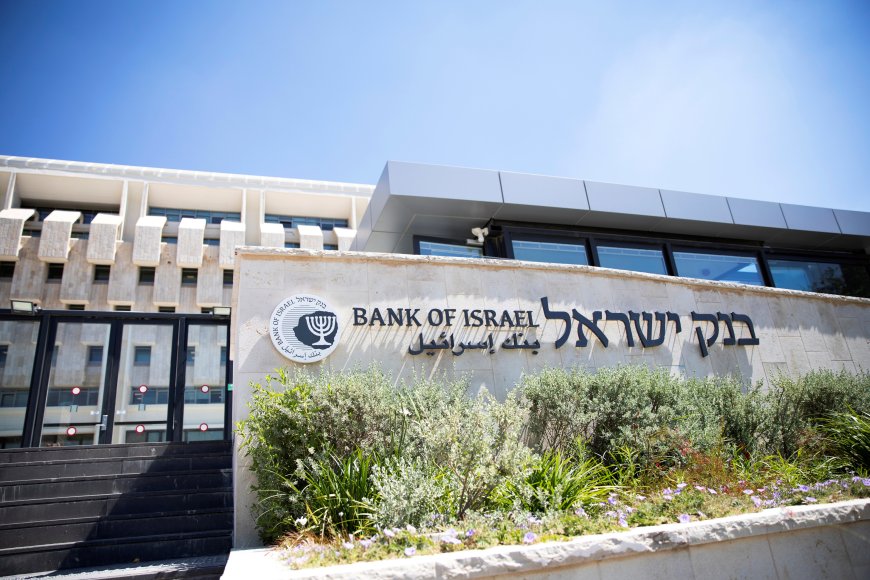Bank of Israel Keeps Key Rate Unchanged at 4.75% Amid Easing Inflation
Central Bank's Decision Reflects Signs of Inflation Relief and Strong Economic Growth

The Bank of Israel announced its decision to maintain short-term borrowing rates at the current level on Monday, marking the first time in over a year that the rates have remained unchanged. This move comes in response to emerging indications suggesting a gradual easing of persistent inflationary pressures within the country's economy.
Steadfast in its approach, the central bank opted to keep its benchmark rate at 4.75%, a level not seen since late 2006. The decision follows a series of ten consecutive rate hikes implemented as part of an aggressive tightening cycle, which commenced in April of the previous year, propelling the rate from a mere 0.1%.
Israel has been grappling with a high inflation rate, which reached a 14-year peak. However, recent data shows a slight decline in inflation to 4.6% in May, down from 5% in April. While still elevated, this decrease signals a positive trend towards the country's inflation target range of 1%-3% annually, as set by the government.
Simultaneously, Israel's economy demonstrated robust growth, surpassing expectations with an annualized rate of 3.1% during the first quarter compared to the previous three months. This solid economic performance reflects the country's resilience and the effectiveness of its policies in navigating through various challenges.
The Bank of Israel's decision to maintain the key rate acknowledges the need to strike a delicate balance between sustaining economic growth and managing inflationary pressures. With the economy showing signs of strength and inflation gradually easing, the central bank seeks to support stability and ensure the sustained progress of the Israeli economy.
The bank's decision aligns with its mandate to regulate monetary policy in the country, keeping a close eye on key economic indicators such as inflation, GDP growth, and market dynamics. This cautious approach aims to maintain an optimal environment for businesses and individuals alike, fostering investment, job creation, and overall economic well-being.
As the Bank of Israel holds its key rate steady, market participants and economists will continue to monitor future developments, particularly inflation trends and the overall economic outlook. The central bank remains committed to adjusting its policies as needed to support the country's economic recovery and promote long-term financial stability.
In conclusion, the Bank of Israel's decision to maintain the key rate at 4.75% reflects the evolving economic landscape and emerging signs of inflation relief. With the country's economy exhibiting resilience and sustained growth, the central bank's cautious approach seeks to strike a balance between fostering economic stability and managing inflationary pressures.
Also Read: Act Now: Last Opportunity to Claim Your Unclaimed 2019 Tax Refund
































































